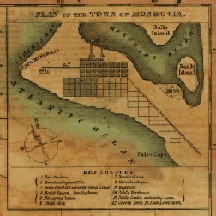Weah Government Spends Two Million Dollars For Bicentennial Publicity
By J. Patrick Flomo
Columbus, Ohio
(614) 707 – 3636
zamawood@gmail.com
The Perspective
Atlanta, Georgia
December 16, 2021
The first centennial anniversary (1922) of the settlement on Providence Island seems not to have been celebrated by the people who were planted on the island by the American Colonization Society (ACS). How ironic that, another century later, the bicentennial (2021) of the Providence Island settlement is being celebrated by a government and people (except for the descendants of the settlers) whose forefathers were driven out of that island and later the mainland, Cape Mesurado. The bicentennial celebration would have been a landmark event if it was designed to convene Liberians to have a conversation about redefining Liberia rather than continuing the definition assigned by the ACS.
The Weah government is set to spend some two million dollars on three American media companies in New York to promote the Liberian bicentennial celebration in the United States. In the meantime, JFK Hospital, the once preeminent hospital in West Africa, and other public healthcare centers are in dire straits with a lack of medical supplies and medical personnel to serve the people. Moreover, Liberia’s capital city of Monrovia has surpassed Lagos as the dirtiest city in West Africa. Two million dollars could improve JFK and provide employment opportunities for unemployed Liberians to clean the city.
The Liberian bicentennial celebration that is being planned for the year 2022 is, in essence, the commemoration of the American Colonization Society (ACS). The ACS, founded in 1816 in Washington D.C., was the brainchild of Rev. Robert Finley, a Presbyterian minister. He had varied motives, but the overarching goal was to expurgate freed black slaves from the United States. Many authors refer to the ACS as a philanthropic organization, but the composition and motives do not conflate with the philosophy of philanthropy. It was more a racist organization. The ACS had no single freed black slave as a member—not even the most celebrated free Negro of the time, Frederick Douglas, the father of American emancipation.
After two centuries of bondage (1619 – 1820), the American Colonization Society (ACS) was bent on the expurgation of freed black slaves from the United States, who were viewed by white slave owners and other whites as an undesirable species not fit to share the same society. They gathered the first group of eighty-six freed slaves to emigrate to West Africa. On January 31, 1820, the frigate Elizabeth set sail from its berth at the edge of Rector Street in New York with eighty-nine passengers bound for the west coast of Africa (Pham).
After thirty-seven days traversing the treacherous Atlantic Ocean, the Elizabeth anchored on March 9, 1821, on Sherbro Island and disembarked her eighty-six emigrants along with the three white agents (one from the ACS and the other two from the American government) charged with the responsibility of managing their affairs. The Sherbro Island colonial experiment failed after several months due to resistance from the natives, malaria, and yellow fever. The three white agents and twenty-six emigrants succumbed to this deadly disease (Liebenow).
The ACS was not deterred by this setback. Armed with $100,000.00 (Lamb) granted by the U.S. Congress with the help of President James Monroe, the ACS dispatched Dr. Eli Ayres and Lieutenant Robert Stockton in late December 1821 to explore down the coast for a suitable location. On December 15, 1821, they selected a small island (present-day Providence Island) of Cape Mesurado called Ducor by the Dei and Bassa tribe, who owned the area (Pham). Ayres and Stockton negotiated with King Peters and six others to have the freed slaves from America establish a colony on Providence Island. The negotiation became very complicated and acrimonious and ended when Lieutenant Stockton pointed a gun at King Peter's head. The so-called Ducor Contract was signed under duress. Ayres and Stockton compensated the chiefs with a pitiful $300.00’s ($7,092.03 today) worth of trinkets.
From this violent acquisition of land from the natives by the ACS, modern Liberia was born, and thus began the bitter conflicts between the settlers and the natives. Despite the violent acquisition of land by the white agents of the ACS and the American government, the settlers committed far more human rights violations against the natives for over a century. These were the original sins of the settlers that were never redeemed until April 12, 1980. The wrath of that sin continues to wreak havoc today.
The year 1922 marked the first century of the landing on Providence Island and the founding of modern Liberia, and yet it was not celebrated by the Americo-Liberians (sons and daughters of former slaves from America) and the Congoes (captured Africans from slave ships on the high seas). I am confounded about this generation and Liberia's new desire to celebrate historical events that have very little relevance to the heritage of most of the country. I am most apoplectic to see the Weah government planning to spend millions of dollars on foreign (American) media to promote such an event in a country where you might find ten Americans on the street who knows where Liberia is.
The Liberian government will pay Ice Miller $300K annually for a three-year period that began August 1. There is an option to renew for another one-year period. Moreover, Strom Public Affairs is in line for a $10K monthly fee for its three-year effort, while Carbon Thread will earn $20K per month. Both are managed by Ice Miller. In return for this service, the N.Y.C.-based Ice Miller Strategies has signed on as the lead public affairs agency for Liberia. It will represent Liberia before the Biden administration, Congress, federal agencies, and multilateral groups that have stakes in Liberia's economic and national security interests (https://www.indepthnews.net/). Is there no Liberian media company with in-depth knowledge of the country to whom such a lucrative contract could be given? I am most astounded that this much money is wasted when our healthcare and educational system are among Africa's worst. This money would add more value to our standard of living by improving our healthcare system and employing many unemployed Liberians to clean the city. What is most disturbing is that no political party has made a public statement regarding such a reckless idea.
A substantive marking of this historical event would have been a convention of Liberians to begin earnest conversations regarding such issues as:
- The Liberian Coat of Arms
- The stench of the name of our capital city, Monrovia (its connection to slavery)
- The flag and other national symbols
- The weakness of our governmental institutions (except the executive branch with supreme power)
- Poverty, education, healthcare, and accelerated population growth
- The domination of our domestic economy by foreign nationals and the high rate of unemployment from year to year
Anything short of the above exercise, this bicentennial celebration without substance and would be a waste of valuable government resources that would benefit the Liberian masses in dire straits of many needs.
What is your take? Please post your comments below:

